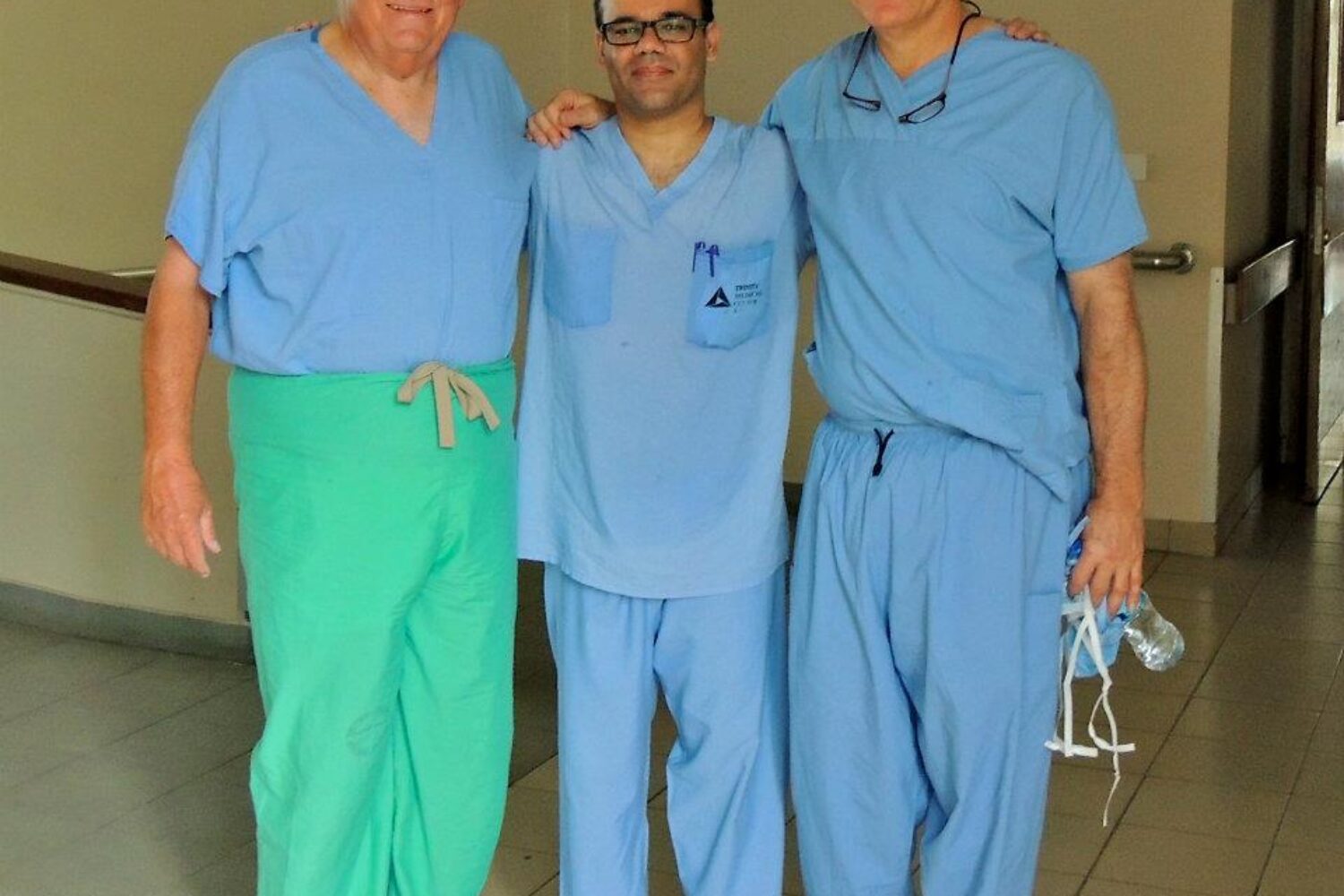Aamer Malik, MD, not only wants to improve orthopaedic expertise in his native Africa, but he wants to keep it there. That’s why, in addition to serving as Chief of the Hip Unit at the Hospital Universitari Sagrat Cor in Barcelona and Tutor for orthopaedic resident education, he also makes two trips to Zanzibar each year. Through the Neurosurgery Education and Development Foundation’s Orthopaedic Program, he coordinates surgical missions in East Africa to expand orthopaedic education there. It’s a commitment he learned from his mentor, the late Lawrence D. Dorr, MD, who not only taught him about hip and knee surgery but also the importance of giving back.
“In Africa, we give people the capacity to take care of their children, go back to work, and integrate into society in a way that is very fulfilling,” he continued. “It’s really magical to perform a surgery and see how a patient who was unwell becomes well within six weeks. That patient can go back to a normal life.”
Malik was a research fellow with Dr. Lawrence Dorr from 2005 to 2007 and then completed a fellowship at the Hospital for Special Surgery in adult reconstruction and joint replacement in 2009. “Dr. Dorr was one of the most inspiring individuals I’ve met as a person, as a professional, and as a mentor,” explained Dr. Malik. “Part of the culture we shared is to care for our society, to give back, and to be part of it. That wasn’t something that Dr. Dorr made up; it was just part of his nature. My greatest connection to him was his altruism and humanity.”
After finishing his HSS fellowship, Dr. Malik participated with Dr. Dorr in three Operation Walk missions in Tanzania and Vietnam. Learning from Dr. Dorr about what it takes to lead such missions, Dr. Malik was inspired to give back to his own community. “I grew up in Africa, I trained in local hospitals, I speak Swahili, I speak Urdu, and I even write Arabic. I culturally understand the people because I grew up there. But while my orthopaedic training helped me understand how to do the surgery, it never taught me how to run a mission and perceive how you can train people over the long term through a project like that,” he said. “That’s the vision and part of the mission that Dr. Dorr had given me as a legacy: how to do more with fewer resources and empower local surgeons and nurses.”
We look forward to Dr. Malik joining us again on another mission and are proud that he is carrying on the legacy of giving back and restoring mobility to those who need it most.

